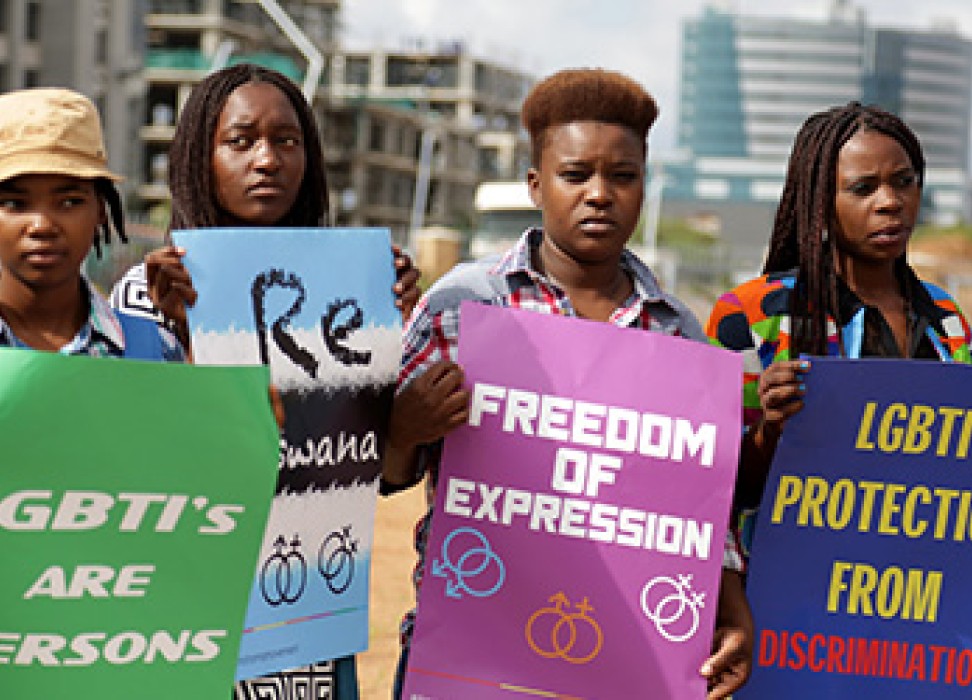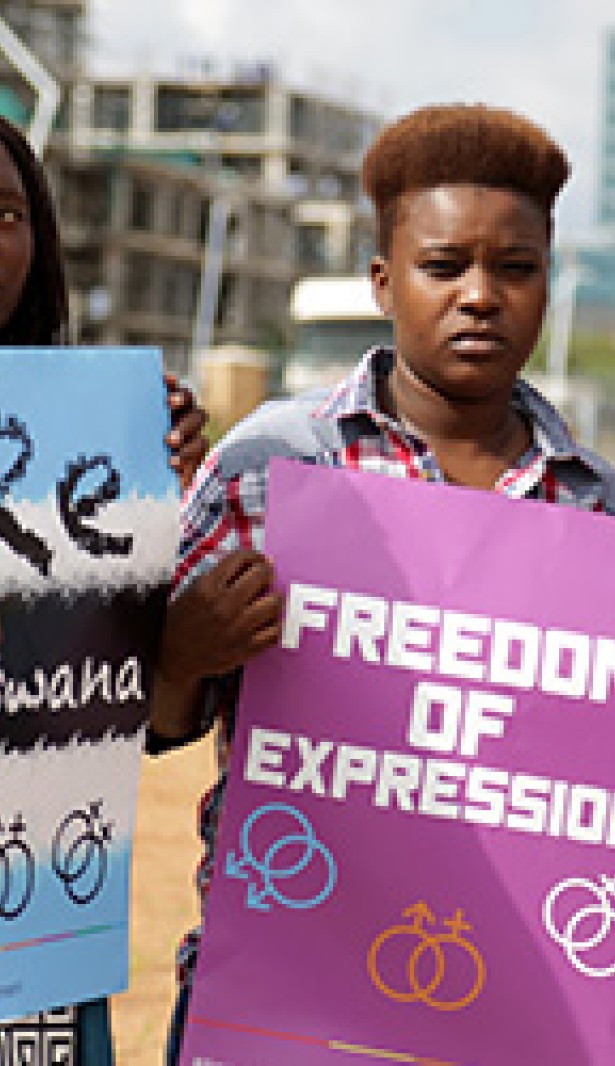Experts unite to end human rights violations based on sexual orientation and gender identity
07 April 2016

Lesbian, gay, bisexual, transgender and intersex (LGBTI) people across the world often face grave human rights violations, including torture, sexual violence, arbitrary detention, even killing – all because of who they are.
In an unprecedented dialogue, regional and UN human rights experts joined forces to look at their human rights situation, and to call for an end to violence and other human rights violations on the basis of sexual orientation and gender identity.
A report, launched today during the 58th Ordinary Session of the African Commission on Human and Peoples’ Rights in the Gambia, summarises the historic dialogue that took place in November 2015 between the African Commission, the Inter-American Commission on Human Rights and UN human rights experts.
The report also highlights the impact that human rights violations have on the health of LGBTI people and their access to HIV prevention and care.
“Violence and other human rights violations based on sexual orientation and gender identity constitute universal challenges that require concerted responses by national, regional and UN human rights institutions,” said Pansy Tlakula, Chairperson of the African Commission on Human and Peoples’ Rights.
The report also emphasises positive developments made around the world in protecting the rights of LGBTI people.
The African Commission adopted a resolution calling to end violence and other violations based on real or imputed sexual orientation or gender identity.
The Inter-American Commission established a Rapporteurship on the rights of lesbian, gay, bisexual, transgender and intersex persons, which recently produced a detailed report on violence against LGBTI persons in the Americas.
James Cavallaro, President of the Inter-American Commission, said protecting the rights of LGBTI people is fundamental to the work of the Commission, as well as bringing "the voices of LGBTI people into our work to challenge the invisibility of the serious human rights violations that they continue to face throughout the Americas and hold States accountable for these violations."
United Nations human rights experts have increasingly addressed human rights violations against LGBTI people, as highlighted in a recent OHCHR report, while the Human Rights Council has passed two resolutions condemning violence and discrimination based on sexual orientation and gender identity.
“The dialogue allowed us to share good practices to guide our common struggle to combat impunity and to ensure the protection and realisation of the human rights of all individuals, including LGBTI people,” said Christof Heyns, UN expert on extrajudicial, summary or arbitrary executions.
The UNAIDS Executive Director, Michel Sidibé and UN High Commissioner for Human Rights Zeid Ra’ad Al Hussein, called the dialogue between regional and UN experts ground-breaking and necessary.
“Ending violence, criminalization, discrimination and other human rights violations against lesbian, gay, bisexual, trans and intersex persons, are priorities for our organizations and for the entire United Nations system,” they said.
Civil society organizations also welcomed the joint dialogue. “Ongoing collaboration and openness to experience-sharing between regional and international human rights systems reinforces the idea of the universality of human rights, and can only help advance the protection of human rights for everyone, including for LGBTI people,” concluded Sibongile Ndashe, Executive Director of the Initiative for Strategic Litigation in Africa (ISLA).
7 April 2016

